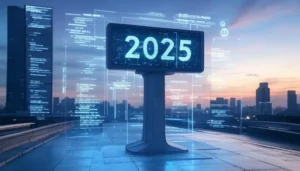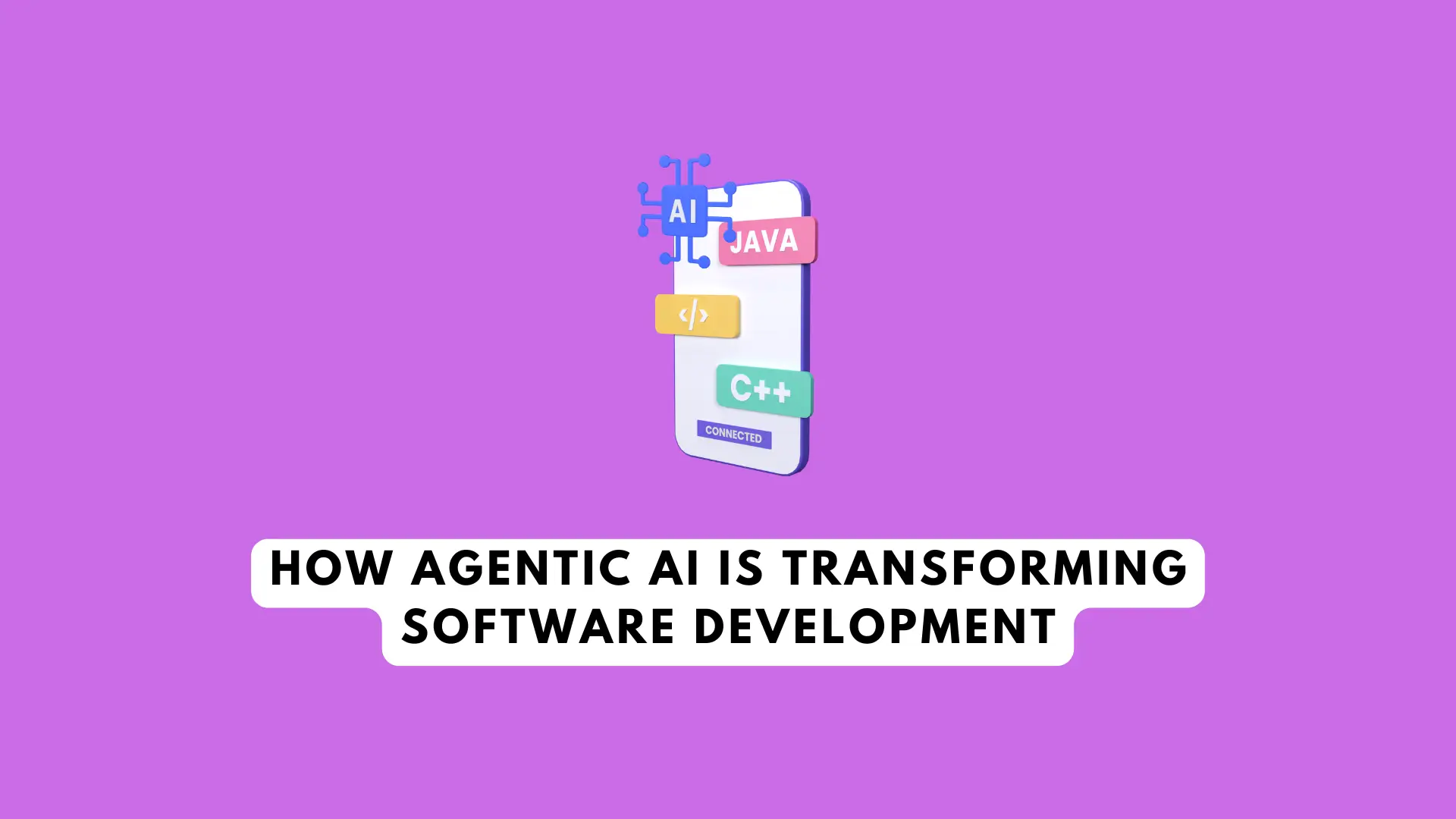Artificial Intelligence has already reshaped software development, from code autocompletion to natural language processing. But as we step into 2025, a new frontier is emerging: Agentic AI. Unlike its generative predecessors, Agentic AI doesn’t just suggest or create—it acts. It autonomously makes decisions, manages tasks, and delivers results, promising to redefine how developers work. So, how exactly is Agentic AI transforming software development in 2025? This blog dives into its mechanics, real-world impact, benefits, challenges, and what’s ahead for coding this year.
What is Agentic AI?
Before exploring its role in programming, let’s define Agentic AI. Imagine an AI that doesn’t wait for your next command—it anticipates needs, executes workflows, and adapts on its own. Generative AI, like ChatGPT or GitHub Copilot, excels at producing code or text based on prompts. Agentic AI, however, takes it further by acting as an independent agent. It can debug code, optimize algorithms, or even coordinate project milestones with minimal human input.
In 2025, this shift is trending fast. Posts on X highlight developers marveling at tools that “think ahead,” while Gartner predicts Agentic AI will dominate enterprise tech by year-end. For software development, this means moving from a tool that assists to one that collaborates—or even leads.
How Agentic AI Transforms Coding

The core of Agentic AI in programming 2025 lies in its ability to streamline and enhance the coding process. Here’s how it’s making waves:
-
- Autonomous Code Generation and Debugging
Developers no longer need to micromanage every line. Agentic AI tools can write entire modules based on high-level goals—like “build a REST API for user authentication”—and then test and debug them autonomously. For example, imagine a tool that spots a memory leak in your Python script, rewrites the inefficient loop, and verifies performance—all before you sip your coffee.
- Autonomous Code Generation and Debugging
-
- Project Management Automation
Beyond code, Agentic AI software development 2025 extends to orchestration. It can break down a project into tasks, assign priorities, and integrate with platforms like Jira or GitHub to push updates. A dev team working on a mobile app could see their AI agent suggest feature deadlines based on market trends scraped from the web.
- Project Management Automation
-
- Real-Time Optimization
Agentic AI doesn’t stop at “good enough.” It continuously refines code for speed, scalability, or energy efficiency. Think of an agent tweaking a cloud deployment script to cut costs by 20%—without a human ever noticing the initial inefficiency.
- Real-Time Optimization
These capabilities mark a leap from passive assistance to proactive partnership, fundamentally changing how coding happens.
Benefits of Agentic AI in Software Development
Why should developers care? The benefits of Agentic AI in software development are compelling:
-
- Skyrocketed Productivity: A 2025 study by McKinsey suggests Agentic AI could boost developer output by 40%, automating repetitive tasks like unit testing or documentation. This leaves coders free to focus on creative problem-solving.
-
- Faster Time-to-Market: Autonomous agents shrink development cycles. A startup building an e-commerce platform could launch weeks earlier with AI handling backend scaffolding.
-
- Error Reduction: By self-correcting and learning from past projects, Agentic AI minimizes bugs that slip through human review.
Take Agentic AI productivity for developers: a lone coder using an agentic tool might match the output of a small team, leveling the playing field for freelancers and startups.
Challenges to Watch in 2025
Of course, no revolution comes without hurdles. While how Agentic AI transforms coding sounds transformative, there are risks:
-
- Over-Reliance: If developers lean too heavily on AI, they might lose critical skills or miss edge cases the agent overlooks.
-
- Control and Transparency: An autonomous AI might rewrite code in ways humans can’t easily audit, raising trust issues in high-stakes fields like healthcare or finance.
-
- Cost and Access: Cutting-edge Agentic AI tools for developers 2025—like xAI’s latest offerings—may carry premium price tags, limiting access for smaller teams.
Balancing these challenges with the benefits will define how widely Agentic AI is adopted this year.
Agentic AI vs Generative AI Coding: What’s the Difference?
To understand its rise, let’s compare Agentic AI vs generative AI coding. Generative AI shines at creation—give it a prompt, and it spits out a function or UI mockup. But it’s reactive, stopping once the output is delivered. Agentic AI, by contrast, is proactive. It might generate that function, test it across platforms, optimize it for speed, and integrate it into your codebase—all without further input.
In 2025, this distinction matters. Generative AI is a co-writer; Agentic AI is a co-developer. Developers on X are buzzing about this shift, with some calling it “the end of manual grunt work” and others debating its reliability.
Top Agentic AI Tools for Developers in 2025
What’s powering this transformation? Here are some Agentic AI tools for developers 2025 making noise:
-
- xAI’s Codex Agent: Building on earlier models, this tool autonomously manages full-stack projects, from API design to deployment.
-
- AutoDev by DeepMind: Focused on real-time code optimization, it’s a favorite for performance-critical applications.
-
- GitHub Agent: An evolution of Copilot, it now handles pull requests and suggests architectural improvements.
These tools, trending on X and tech blogs, are early leaders in the Agentic AI race. Trying one could be your first step into this future.
The Future of Coding with Agentic AI in 2025
What’s next for Agentic AI software development 2025? The trajectory is clear: deeper integration and wider adoption. Predictions include:
-
- DevOps Synergy: Agents will bridge coding and operations, auto-scaling cloud resources or rolling back faulty deployments.
-
- Team Collaboration: Imagine an AI agent joining your Slack, coordinating sprints based on team velocity and bug reports.
-
- Mass Adoption: By year-end, 60% of enterprises might use Agentic AI, per IDC forecasts, driven by productivity gains.
The future of coding with Agentic AI 2025 isn’t just automation—it’s augmentation. Developers won’t be replaced but empowered, tackling bigger challenges with smarter tools.
Why 2025 is the Year of Agentic AI
The timing couldn’t be better. With tech giants racing to refine autonomous systems and startups leveraging them for agility, 2025 is a tipping point. Agentic AI trends in tech 2025 show it’s not a fad but a foundation—especially in software development, where speed and precision are king.
On X, developers share stories of shaving hours off builds or catching bugs they’d have missed. Web reports echo this, with Agentic AI hailed as “the next industrial revolution” for coding. Whether you’re a solo dev or leading a team, this is the year to explore its potential.
How to Get Started
Ready to see how Agentic AI transforms coding for yourself? Start small:
-
- Test a tool like GitHub Agent on a side project.
-
- Join X conversations with #AgenticAI or #DevTrends2025 to learn from peers.
-
- Experiment with a goal—say, “automate my next CRUD app”—and track the time saved.
The learning curve is steep but worth it. As autonomous AI in software engineering grows, early adopters will lead the pack.
Conclusion
Agentic AI in programming 2025 isn’t just a buzzword—it’s a paradigm shift. From writing code to managing projects, its autonomous nature is transforming software development at every level. The benefits—productivity, speed, accuracy—are game-changing, even if challenges like transparency linger. As tools evolve and adoption spikes, 2025 promises a new era for developers willing to embrace it.
What’s your take? Have you tried Agentic AI in your workflow? Drop a comment or tweet your thoughts—I’d love to hear how it’s shaping your code in 2025.
